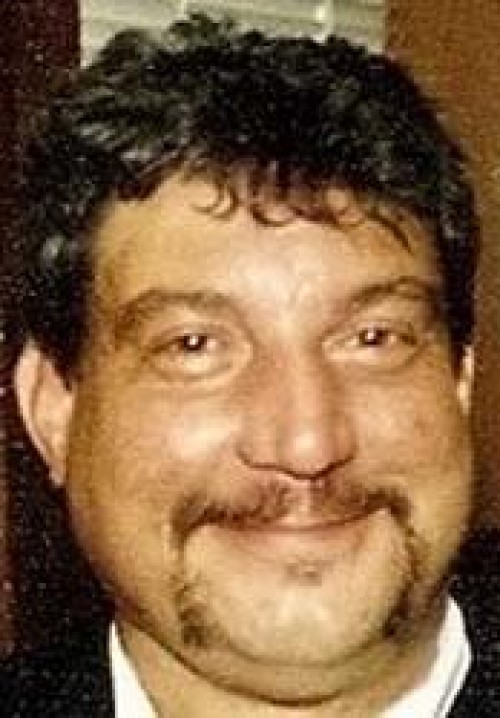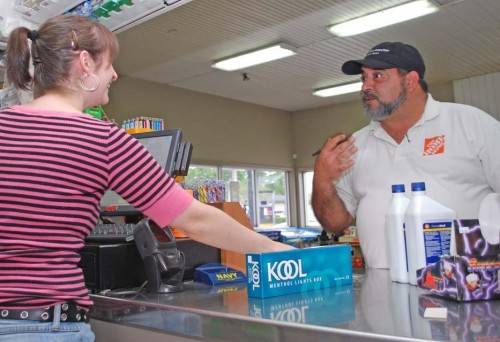Junior A. Fabiano
April 7, 2009
Willard John Kraemer Jr.
April 9, 2009Local smokers and tobacco retailers are burning mad over the latest federal cigarette tax increase – the largest ever – which went into effect last Wednesday.
The federal government now collects $1.01 in taxes from tobacco manufacturers per cigarette pack, up from 39 cents.
Taxes on all tobacco products jumped dramatically across the board – loose tobacco is $24.78 per pound, up from $1.09; pipe tobacco increased $2.83 from $1.10; chewing tobacco is 50 cents per pound, up from 19 cents per pound; and the tax on cigars is 40 cents each, a significant bump from 5 cents each.
Most tobacco manufacturers raised prices on their products in mid-March in anticipation of the tax increase.
“Business has been slower. I’ve had about a 20 to 25 percent loss in business since the tax (increase) went into effect,” said Lester Naquin Jr., owner of Cheap Smokes in Houma and Raceland. “That may be people just trying to quit smoking now. It just depends on whether (smokers’) nicotine habit gets the best of them and they come back.”
Tobacco outlets are a family business for Naquin. His father, Lester Sr., owns Nockos in East Houma and Raceland, while his brother Jacob owns a store in LaPlace.
Congress passed the tax increase to finance a $32.4 billion expansion of the State Children’s Health Insurance Program (SCHIP) in January. President Barack Obama signed it into law Feb. 4.
Opponents of the tax hike say smokers should not have to carry the heavy burden of paying for SCHIP coverage.
“They need to spread the responsibility around,” said Gray native Jerry Dupre. “Why aren’t they taxing beer and other alcohol-related products?”
“Obesity and heart disease are the top killers,” Naquin added. “Why not put a $1 tax on margarine and cooking oil.”
Another reason some disagree with the tax increase is that most smokers are lower- and middle-income people. Therefore, they pay more of the tax than higher-income individuals.
According to the nonpartisan tax research organization Institute on Taxation and Economic Policy, the poorest Louisianans spent 10 times more on cigarette taxes than the wealthiest state residents.
“Most smokers are on fixed incomes,” Naquin said. “Like today, they’re coming in with their Social Security checks. That money can only stretch so far, and they still have to pay rent, utilities and food. What are they going to do? Walk around nicotine crazed? Not pay the electric bill? It’s sad really, because I see them every day.”
Last year, the federal government collected nearly $7 billion in cigarette taxes, while states collected $19 billion.
The Tax Foundation, a Washington, D.C.-based nonpartisan tax research group, estimated that Louisianans will pay nearly $108 million in federal cigarette tax in the fiscal year 2010, the first full year the tax takes effect.
The group’s analysts also suggest that while the state sales tax revenue would increase about $1.7 million because of the higher costs of cigarettes, Louisiana will lose over $34 million in total revenue since fewer cigarette packs will be sold.
“Every state that has increased the tax, they actually got less revenue because people quit smoking,” Naquin said. “Look at Michigan, California and New York. I guarantee you, whatever the amount of money they were getting before, they are going to get less.”
Louisiana has one of the lowest state cigarette taxes in the nation at 36 cents per pack.
That could change under a bill proposed by state House Speaker Pro Tempore Karen Carter Peterson (D-New Orleans).
She filed legislation, House Bill 75, last month seeking to raise the tax on a pack of cigarettes by $1 a pack ($10 per carton).
The bill also would increase the tax on cigars invoiced by the manufacturer at $120 or less per thousand from 8 to 12 percent. The tax on cigars invoiced at more than $120 per thousand rose from 20 to 30 percent.
Peterson said the tax increase on cigarettes alone would generate $209 million a year for the state. Andrew Muhl of the American Cancer Society said tobacco use costs Louisiana nearly $4 billion annually in health care expenses and lost workers prductivity.
The bill needs a two-thirds majority in each chamber to pass. Gov. Bobby Jindal has threatened to veto the measure if it passes.
State legislators will debate raising the state’s cigarette tax when the regular session begins on April 27.
Dupre, the longtime smoker, said the price of cigarettes has not affected his effort to stop smoking. It is strictly a health issue.
He was a four-pack-a-day smoker until heart and blood pressure problems forced him to trim his habit. Since manufacturers began raising prices on March 16, Dupre has cut down from one pack to a half-pack daily. The day he spoke to the Tri-Parish Times, he purchased a carton of Kool cigarettes for $38, up from $27 earlier in the week before the tax hike.
Manufacturer Reynolds American Inc., maker of Kool, Camel, Winston and Salem, raised prices 44 cents, and Lorillard Inc., maker of Newport, raised its prices 71 cents per pack.
Dupre’s stepbrother, Ronnie Allemand, however, said the higher cost was the last straw to make him quit his three-quarter-pack-a-day smoking habit.
“I haven’t bought cigarettes since the price went up three weeks ago,” he said. “That was the big excuse it took to finally stop. I don’t want to pay those prices.”
That’s exactly what the Louisiana Campaign for Tobacco-Free Living (TFL) likes to hear. According to the advocacy group, the combination of the tax hike and a new media campaign are attracting business for TFL.
“In the first month, over 1,000 people have called our quit line (1-800-QUIT-NOW),” said Carrie Griffin, policy and advocacy program manager. “That’s more calls than we got in a six-month period last year.”
TFL, in conjunction with the state Department of Health and Hospitals’ Tobacco Control Campaign, also offers an online source for smokers at www.quitwithus.la.org.
Gray native Jerry Dupre purchases a carton of Kool cigarettes from Cheap Smokes employee Monique Smiley on April 1, the first day a 61-cent per pack increase in federal cigarette tax went into effective. * Photo by KEYON K. JEFF










